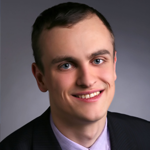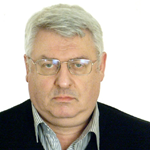A new type of extreme programming is proposed. When using this approach teams which take part in Association for Computing Machinery International Collegiate Programming Contest (http://cm.baylor.edu/welcome.icpc) are given a scientific problem from the discrete mathematics area. Contrary to the programming contests and trainings when about 10 problems are solved in 5 hours teams are solving only one problem.
Problem solving process is similar to the training process—it is based on meetings which occur two times per week and are similar to brainstorms (between meetings participants continue to solve problem, but work separately). Several teams consisting of 3 people each take part in each meeting. After meeting its results are discussed with “coaches” and clients (consultants).
Authors:
Fedor Tsarev
Postgraduate, National Research University of Information Technologies, Mechanics and Optics (NRU ITMO)
Graduated from physics and mathematics lyceum #239 in St. Petersburg in 2003. Graduated from NRU ITMO (diploma with honors) in 2009. From 2009 since now is a PhD student at Computer Technologies Department at NRU ITMO.
Since 2007 takes part in research in the area of automata-based programming, since 2011 takes part in research in the area of genome assembly algorithms.
Honors & Awards: 2007—St. Petersburg Youth Award in the area of Information Technologies, 2007—All-Russia champion in programming, 2008—Association for Computing Machinery International Collegiate Programming Contest (ACM ICPC, World Championship in Programming) World Champion.
Research Interests: Bioinformatics, Automata-Based Programming, Evolutionary Algorithms, Machine Learning
Anatoly Shalyto
Head of Computer Technologies Department, NRU ITMO, PhD, professor
Born on May 28, 1948. Graduated from Automation and Telemechanics Department of Leningrad Electrotechnical Institute at 1971 (diploma with honors). Since 1971 he is working at scientific production association “Aurora” (Saint Petersburg, Russia). Since 1999 he is a science secretary at “Aurora”. In 1977 he completed the postgraduate course and presented a Ph.D. thesis on Elements and Devices of Computer Engineering and Control Systems. Candidate of Technical Science (since 1977). In 1999 presented a doctoral thesis on the same topic. Doctor of Technical Science (since 2000). In 1974–1991 he worked as a lecturer in the Institute of Postgraduate Education for Specialists in Shipbuilding Industry (Saint Petersburg). Since 1998 he works as a lecturer at the Computer Technologies Department in NRU ITMO. Since 2000 he is a professor at this Department. In 2001 he got an academic status of professor at this Department. In 2008 received the Russian Government Award in the area of Education. Has proposed the “Save the best” initiative in the context of which world champions in programming are working full-time at the Computer Technologies Department of NRU ITMO.
Research interests—automata-based programming, evolutionary computation, software verification, genome assembly.

 Русский
Русский  English
English 































